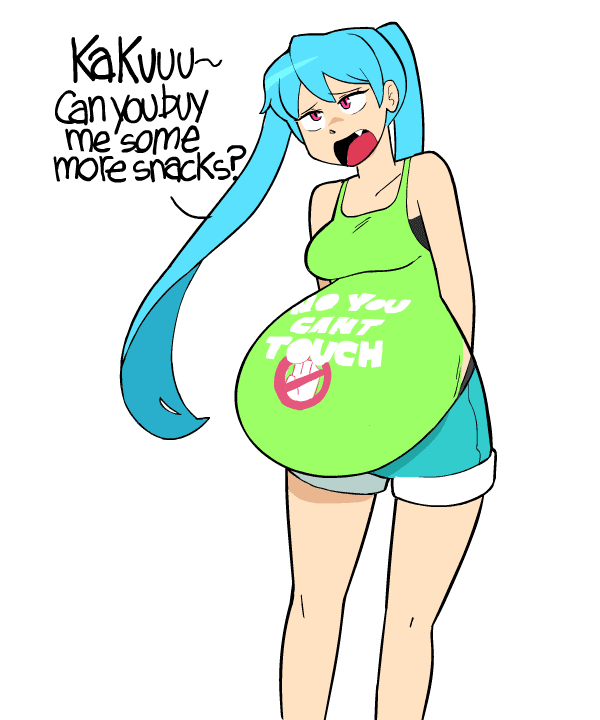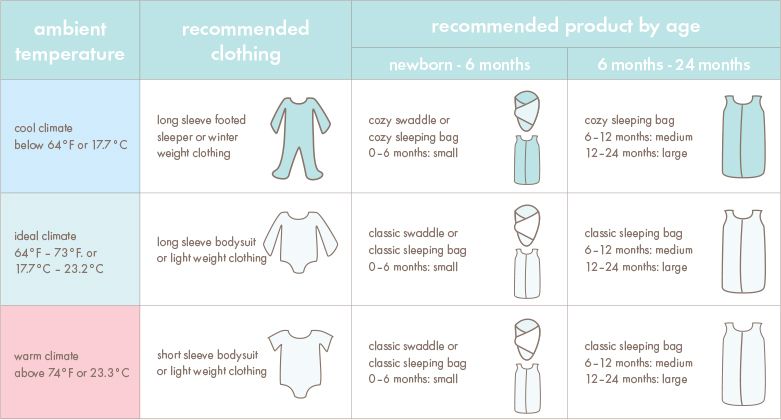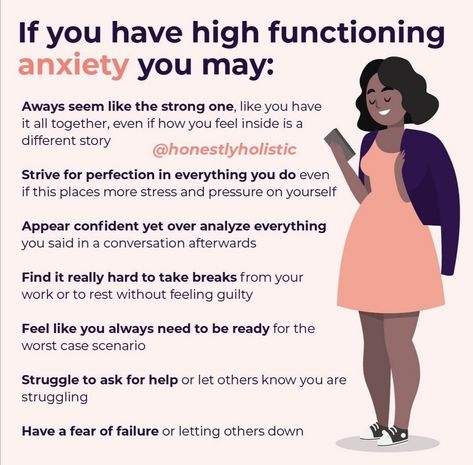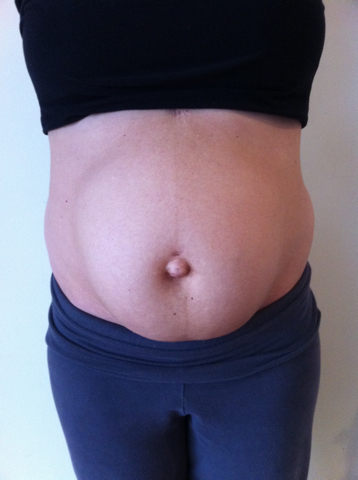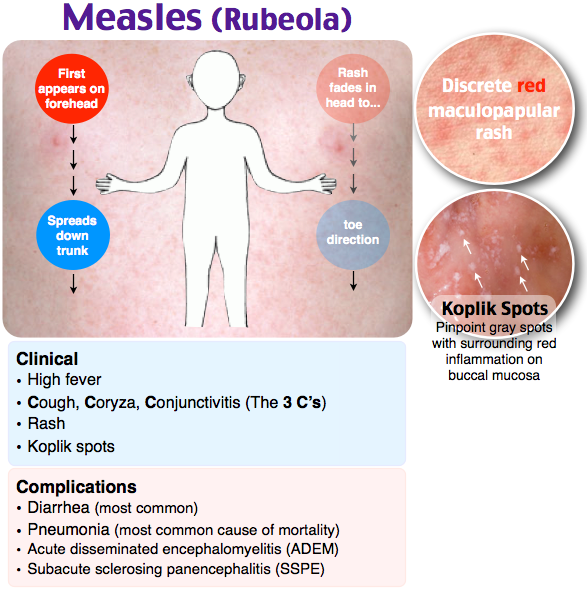Can i take my newborn out
When Can Newborns Go Outside?
It’s super-rewarding to experience new things with baby, and going outside together is no exception. Of course, picking that first pumpkin at the patch or heading to the playground sprinklers might seem far in the future when you’ve got a shiny newborn to keep you company—but there are plenty of ways to enjoy the great outdoors together right from the start. Wondering when newborns can go outside? Here, we’ll give you the scoop on exactly how to get baby out and about safely and happily—and when it’s okay to do so.
In this article:
When can a newborn go outside?
Safety tips for taking newborns outside
When not to take babies outside
When Can a Newborn Go Outside?
If you’ve just given birth and are yearning for some fresh air, you may be itching to ask: “When can I take my newborn outside?” We’ve got good news for you: It’s okay to take baby outside right from birth. Laura Purdy, MD, MBA, a hospitalist at Williamson Medical Center and Chief Medical Officer at OpenLoop, says you can and should do it whenever you feel ready. “As long as your baby is healthy and the pediatrician did not share any cautions with you that would prevent the baby from going outside, it’s safe anytime!” she adds.
If the prospect of heading outside with your newborn feels daunting, start with a leisurely walk. You can use the stroller or wear baby in a carrier. Going for a stroll or having your next feeding session on a park bench is a great bonding experience and a nifty way to get some fresh air and vitamin D.
When can a newborn go outside in public?
As for taking baby out to public places, it’s recommended that you avoid bringing them into congested spaces, if possible—at least until they’ve had their first round of vaccinations. “Infants under a few months old don’t have their first immunizations (to protect against whooping cough, polio, pneumococcal diseases, etc.) and their immune systems are immature, so it’s important to avoid crowded areas,” says Meghan Martin, MD, a pediatric emergency medicine doctor at Johns Hopkins All Children’s Hospital in St. Petersburg, Florida. It’s precautionary, though, and there’s no definitive rule. Of course, while some pediatricians recommend waiting a few weeks before taking baby into stores, restaurants and on public transit, you know very well that the grocery shopping isn’t going to do itself. Sometimes, taking a newborn out before 6 weeks of age isn’t a matter of choice—it’s a necessity. Use your best judgment and take some steps to keep your little one healthy and happy (more on that below).
Petersburg, Florida. It’s precautionary, though, and there’s no definitive rule. Of course, while some pediatricians recommend waiting a few weeks before taking baby into stores, restaurants and on public transit, you know very well that the grocery shopping isn’t going to do itself. Sometimes, taking a newborn out before 6 weeks of age isn’t a matter of choice—it’s a necessity. Use your best judgment and take some steps to keep your little one healthy and happy (more on that below).
Purdy notes that your doctor may advise against taking baby out in public if they have a compromised immune system, due to a severe illness, such as cancer, or chronic conditions like Type 1 diabetes or cystic fibrosis. “Babies that are born very prematurely or have a lengthy NICU stay could be recommended to hold off from public appearances while they’re growing and developing their immune systems,” she adds.
Safety Tips for Taking Newborns Outside
Use some common sense and follow your instinct when taking your newborn outside. If it’s too hot or too cold, go back indoors. Regardless of whether you’re just doing some laps in the neighborhood or heading into town, there are a few tips you should keep top of mind to make those first outings pleasant and safe:
If it’s too hot or too cold, go back indoors. Regardless of whether you’re just doing some laps in the neighborhood or heading into town, there are a few tips you should keep top of mind to make those first outings pleasant and safe:
- Keep baby out of direct sunlight. Put a wide-brimmed hat on baby and bring a light blanket to help shade them from the sun. Babies 6 months and older can use sunscreen.
- Dress baby appropriately. In warm weather, dress your little one in loose, comfortable clothing. In colder temps, consider a fleece-footed sleeper to avoid exposing baby’s skin to cold and wind. If it’s particularly nippy, a baby carrier can offer added warmth.
- Avoid insects and mosquitoes. Martin notes that babies 2 months and older can use 10 to 30 percent DEET insect repellent. In the meantime, you’ll want to avoid woodsy areas or other insect-prone spaces.
- Monitor baby closely. Babies can’t regulate their temperature like adults and older children can, so it’s important to watch for signs of overheating (or alternatively, of being too cold), says Martin.
 If they’re flushed and irritated, they may be too hot, says Martin. If baby is shivering or has cold hands and feet and pale skin, time to warm up inside!
If they’re flushed and irritated, they may be too hot, says Martin. If baby is shivering or has cold hands and feet and pale skin, time to warm up inside! - Be conscious of germs. If you’re out in public, maintain social distance and try not to let people to get too close or touch baby. A baby carrier can keep your newborn nestled on your chest and deter curious strangers from getting handsy (win-win!). While you’re being germ-cautious, she recommends washing your hands frequently—and wiping down baby’s hands too!
- Pack the essentials. If you’re running an errand with baby in tow, make sure you have the basics packed—diapers, wipes and a spare change of clothes will regularly come in handy.
- Don’t hang bags from the stroller’s handles. Going for a stroll with your newbie? Martin warns that adding too much weight to the handles of your stroller can cause it to tip, creating a potentially dangerous situation for baby.

When Not to Take Newborns Outside
There’s nothing quite like getting outside with your new little one. After all, there’s so much to see and explore! But there are certain times when venturing out is not advisable. Martin recommends avoiding trips in these circumstances:
- When there’s severe weather or the threat of severe weather
- On very hot days when the UV index is at the highest point of the day (between 10 a.m. and 4 p.m.)
- When you know you’ll be outside for extended periods of time
- Martin also says to “use caution” if baby is sick
If baby has an underlying condition that compromises their immune system, talk to your pediatrician about the types of outdoor activities and errands you should and shouldn’t be doing together.
Taking your newborn on outings can be exciting (and daunting!), but a change of scenery can be good for both of you. Take it one step—and one outing—at a time. Soon, you and your little companion will be ready to go all sorts of places together.
About the experts:
Meghan Martin, MD, is a pediatric emergency medicine attending physician at Johns Hopkins All Children’s Hospital in St. Petersburg, Florida. She earned her medical degree from Florida State University in Tallahassee, Florida.
Laura Purdy, MD, MBA, is a hospitalist at Williamson Medical Center and chief medical officer at OpenLoop. She earned her medical degree from Uniformed Services University of the Health Sciences in Bethesda, Maryland.
Please note: The Bump and the materials and information it contains are not intended to, and do not constitute, medical or other health advice or diagnosis and should not be used as such. You should always consult with a qualified physician or health professional about your specific circumstances.
Plus, more from The Bump:
10 Weird (but Totally Normal) Things About Your Newborn
Baby Milestones: What Baby Will Do When
Everything You Need to Know About Breastfeeding in Public
When Can Newborns Go Outside? Safety and More
Hello, fresh air and sunshine! Exiting the hospital with your new baby can be a magical moment. Unfortunately, it may also leave you with a sense of panic as you realize that your little one is now entering into the real world.
Unfortunately, it may also leave you with a sense of panic as you realize that your little one is now entering into the real world.
You may have heard from a friend or family member that newborns shouldn’t be outside for the first couple of months of their lives. Is this true? Should you really keep your baby inside for the first 6 to 8 weeks after birth?
If your anxiety is rising just thinking about this, don’t worry!
We understand that being a new parent can be overwhelming, so we’ve gone through the research to help answer all your questions about taking your newborn out and about for the first time.
Most pediatric health experts agree that babies can head outside right away, as long as you use basic safety precautions. (More on those to come, so keep calm and read on!)
Generally speaking, there’s no need to stay inside with your little one for the first 1 or 2 months of baby’s life if you both feel up to getting out. In fact, some fresh air and sunshine can benefit you both, thanks to vitamin D and mood-boosting benefits.
One exception to keep in mind, though, is that some doctors prefer you wait a bit before taking your little one into crowded spaces where they may be exposed to high levels of germs — especially during COVID-19 surges.
It is true that your newborn’s immune system is still developing and may struggle to fight off infections.
There are precautions you can take, though — like hand washing and physical distancing — to minimize the chance of your little one developing an illness.
For most infants, taking typical safety precautions while outside is sufficient to keep them safe.
In rare cases where your child has a health condition that makes their immune system particularly susceptible to germs, your doctor may advise you to take extra precautions. These can include staying at home during periods of specific concern.
If you’re ready to take your little one outside, you’ll want to make sure to follow appropriate safety measures. These include:
Dress them in weather-appropriate clothing
Double-check baby’s outfit to make sure it’s weather appropriate. You’ll probably also want to have a spare outfit or blanket packed, in case of an emergency change or if extra layers are needed.
You’ll probably also want to have a spare outfit or blanket packed, in case of an emergency change or if extra layers are needed.
A general rule of thumb is to dress your baby for the weather and then add one extra layer. You’ll want to check to make sure they’re comfortable throughout the outing as well.
Have a sun-protection plan
A little sunshine can be nice, but baby skin burns easier, so you’ll want to make sure that it’s covered with clothing and a sun hat or hidden in the shade.
Because infants are at a greater risk of sunscreen side effects, the Food and Drug Administration (FDA) and the American Academy of Pediatrics recommend keeping infants in the shade and out of direct sunlight. However, in a pinch it may be OK to apply small amounts of sunscreen to exposed skin. Just consult with your pediatrician first if your baby is younger than 6 months old.
Avoid crowds
Crowded places like malls, airplanes, or pools mean that there’s more chances for germs to spread.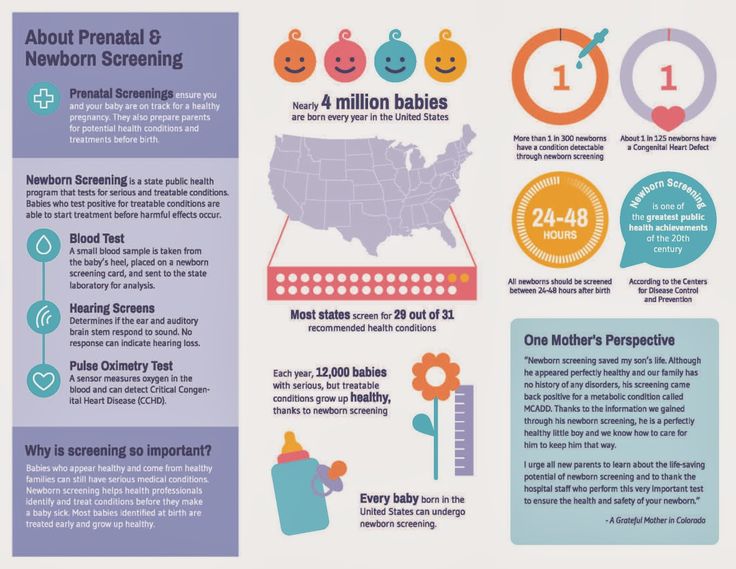
Especially in light of the COVID-19 pandemic, many experts encourage parents to avoid these places with their newborns.
If possible, it’s also best to avoid places like the grocery store and indoor restaurants where ventilation may be poor and you might have trouble physical distancing from other people.
Wash your hands — and make sure others do, too
Ensure that anyone who touches your baby has washed their hands. No one showing any symptoms of illness should come in contact with your newborn.
You may even wish to teach young siblings to touch only baby’s toes or back and not their hands or face. This may help reduce the risk of spreading germs.
Limit visitors
It might be hard to say no when well-meaning family and friends want to visit baby, but it’s good to limit who is allowed around your newborn.
Again, because of COVID-19, many experts are suggesting restricting visitors around you and your newborn until the pandemic improves.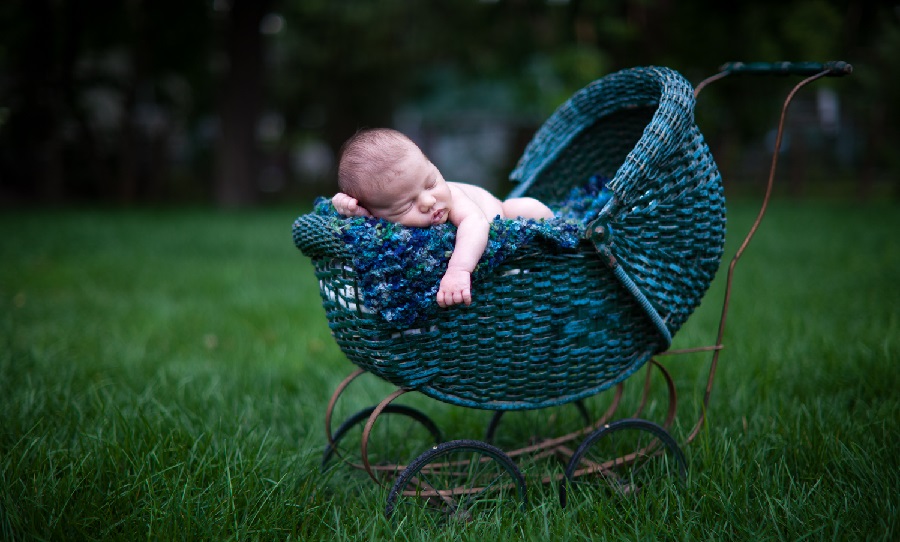
Use a baby carrier
Babies can be irresistible! But wearing baby in a baby carrier rather than using a stroller can keep your little one close and help prevent other people from touching (or kissing!) them.
There are some times when you’ll want to think twice before loading baby into their car seat or stroller. You may wish to stay inside your home if:
- Extreme weather conditions are occurring. Mail carriers may brave wind, snow, sleet, and hail, but your newborn should avoid extreme temperatures and being outside in bad air quality whenever possible.
- Your child has a medical condition. If your newborn has special medical needs that leave them particularly susceptible to germs, you’ll want to consult with their doctor before taking them out and about.
- It’s peak sunlight hours. The middle of the day can be an especially hard time to find shade and protect your baby’s skin. For this reason, you may wish to avoid excessive time outside when the sun is at its strongest.

If you do need to go outside with baby for any reason, especially in warmer weather and for longer periods of time, be sure to bring plenty of breast milk or formula to keep them hydrated.
Most doctors agree that there’s no need to wait until your baby is 1 or 2 months old to take them out and about. However, you also shouldn’t feel pressure to do it before you’re ready.
Newborn babies can seem so delicate, you might want to put them inside a bubble of protection (or at least never let them see sunlight).
The truth is some sun protection, weather-appropriate clothing, and distance from crowds will probably be enough to keep them safe.
If you have any questions about taking your newborn outside or if your infant has special medical circumstances to consider, you should never hesitate to speak with your child’s pediatrician.
I do not love my child
It is not accepted to say that motherhood may not bring joy, while many women experience postpartum depression and emotional burnout, raise children alone and feel cut off from the outside world. We talked to heroines who do not feel happy as a mother and do not feel love for their children.
We talked to heroines who do not feel happy as a mother and do not feel love for their children.
“I hate motherhood for having to constantly sacrifice myself for others”
Mary’s story
36 years old, lives in St. Petersburg, three children: the eldest is five years old, the middle one is three years old, the youngest is one year old
At sixteen, Maria left her parents for Moscow. Having entered the university, she began to engage in hiking and outdoor activities. In the summer, she led excursions around Solovki. The rest - traveled to different countries. This went on for fifteen years. And all this time, Maria did not think about children at all. But seven years ago, she decided to stay in Solovki for the winter - one woman offered to live in her house for free, and Maria agreed. There she met her future husband, four months later they got married, and Maria became pregnant almost immediately. At that time, she was deeply immersed in Orthodoxy, so she had thoughts about her family and children.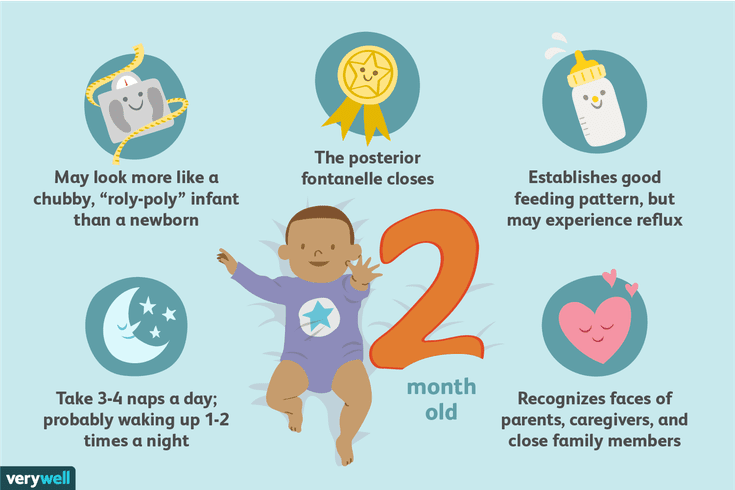 But at the same time, both marriage and the first child, as the heroine now understands, were rash, spontaneous events.
But at the same time, both marriage and the first child, as the heroine now understands, were rash, spontaneous events.
Two years before her pregnancy, Maria had a very active life, she went in for yoga, sports, swam in the hole, went skiing. “I was in excellent physical shape. Apparently, the Lord gave me these two years of breathing room. Now I’m in terrible shape, I’m practically falling apart,” she says.
After giving birth, Maria didn't have time to get euphoric or depressed - she immediately returned to work, started moving and doing other things. Depression covered her later - six months later, when she began to stay alone with the child: “My husband was at work from 7 am to 8 pm, with one day off. I sat with the child all day long. All my childless friends have safely forgotten about me, as if I had ceased to exist. And that was the hardest part: the endless routine, my son's colic and bad sleep."
The husband always helped as much as possible - he, as Maria says, is one of the helping husbands. But still, the family lived according to the traditional distribution of roles: the man goes to work, the woman stays with the children. “Everyone thinks that this is the norm,” says Maria. - They constantly told me: "What are you complaining about, you are sitting at home with one child." In fact, it's hard, because I am not in my life, there is only a child . As soon as I turn away, he starts squeaking. As soon as I start doing my own business, he immediately requires attention.
But still, the family lived according to the traditional distribution of roles: the man goes to work, the woman stays with the children. “Everyone thinks that this is the norm,” says Maria. - They constantly told me: "What are you complaining about, you are sitting at home with one child." In fact, it's hard, because I am not in my life, there is only a child . As soon as I turn away, he starts squeaking. As soon as I start doing my own business, he immediately requires attention.
According to Daria Utkina, a psychologist, doula, and the author of the Take Care of Yourself project, the standards and expectations of mothers in the modern world are much higher than they were in the 20th century. Now they have to not only try hard, but also in no case go too far in their desire to be a good mother in the stream of intensive motherhood. And being just a housewife is no longer enough. At the same time, there are fewer and fewer traditional support practices: in many countries, gardens and nannies are expensive, decrees are short, and a normal family income should consist of two salaries.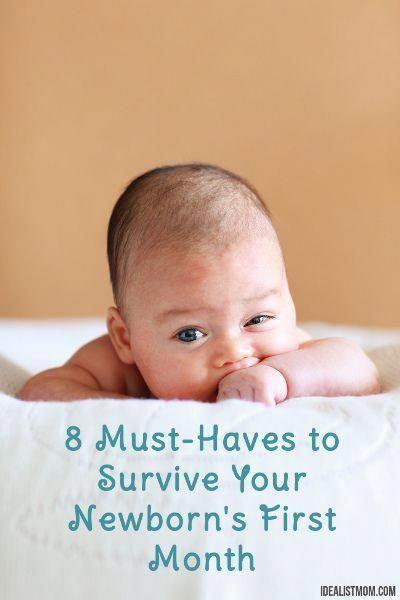 It often happens that grandparents are far away, there is no help, plus the city is not intended for children. “Against this background, it is difficult for women in the 21st century not to notice how dramatically expectations from them and reality do not coincide. Or they have to put in too much effort to meet these expectations,” Daria explains.
It often happens that grandparents are far away, there is no help, plus the city is not intended for children. “Against this background, it is difficult for women in the 21st century not to notice how dramatically expectations from them and reality do not coincide. Or they have to put in too much effort to meet these expectations,” Daria explains.
“Modern motherhood is becoming more and more diverse,” says sociologist Olga Savinskaya. - On the one hand, there is one trend for modernization - the desire for equality, changing the established roles in the family, a sense of the trends of the future. But in parallel with this, a conservative ideology is advancing to preserve the traditions and foundations that successfully existed in the past. People who share conservative principles consider them time-tested and therefore true. Seeing different practices and values of parenthood around them, the younger generation is becoming more reflective: they are more and more thinking and making choices about how to build relationships with a spouse and a child. Therefore, instead of following traditions, they begin to follow their own individual path. It is this reflection that prompts public talk that motherhood is not easy and simple, it is hellish work . Women are talking more and more about how physically difficult it is: to endure, not sleep, to be on the alert, to always remain positive towards a little person who still does not know how to take into account the needs of mother and father
Therefore, instead of following traditions, they begin to follow their own individual path. It is this reflection that prompts public talk that motherhood is not easy and simple, it is hellish work . Women are talking more and more about how physically difficult it is: to endure, not sleep, to be on the alert, to always remain positive towards a little person who still does not know how to take into account the needs of mother and father
Thoughts that Mary is tired of motherhood, finally came along with the third child. Three days before she found out she was pregnant, she sold her travel company. Left without support and being physically exhausted, Maria began to think about abortion, despite her religious beliefs. “We left everything and flew with my family to Thailand because I wanted to run away. There I already had toxicosis, and I physically felt that I was a child. And, of course, there could be no thought of any abortion.” Maria recalls that at that time she felt only confusion and fear for the future: “I thought what I would do with three children?! Only on the horizon appeared a way out to people, and here again these rags and diapers.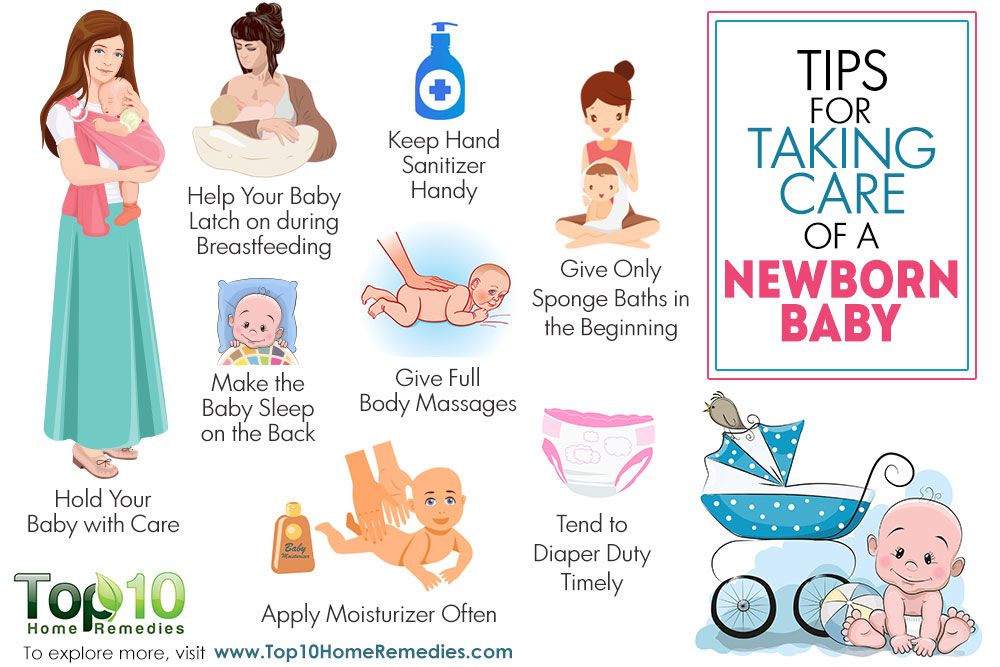
Maria never keeps her emotions to herself. She can send the children to another room, if she needs to mind her own business, she can shout. The husband condemns her: he does not like that she can sit on the phone instead of playing with the children, he does not accept when they raise their voice at the children. “If I'm tired or I need to be alone, I can even say it in a rude way. Unlike my husband, he endures to the last. He thinks that everything is for children. But I don’t: first I will eat myself, and then I will feed them. This is my burnout valve. I will send everyone if I want to sleep. I won't play with them. I don't know if this is good or bad. But I am quite open in my manifestations, even if this behavior is not accepted in society.”
“Most often, mothers experience burnout in Western countries where there is individualism, where women are more independent: the USA, Canada, European countries. The United States has the most burnout mothers,” says psychologist Alena Prihidko.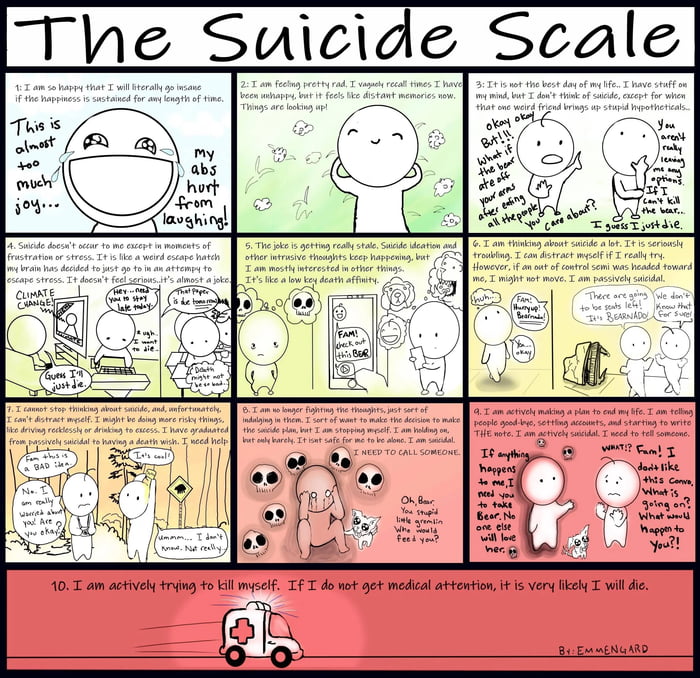 - Of course, when a woman is tired, in particular, from trying to strive to meet the standards of a good mother and constantly worrying about her child, this leads to the fact that the mother is on the verge of exhaustion. And when you are exhausted, it is very difficult to feel the feeling of love.”
- Of course, when a woman is tired, in particular, from trying to strive to meet the standards of a good mother and constantly worrying about her child, this leads to the fact that the mother is on the verge of exhaustion. And when you are exhausted, it is very difficult to feel the feeling of love.”
There are no statistics on maternal burnout in Russia. But Daria Utkina explains that out of the 1.5 million births that occur in the country every year, approximately 300 thousand women experience postpartum depression. About the same number, according to the first studies, experience symptoms of post-traumatic stress disorder (PTSD) after childbirth. Another part of them were extremely tired and burnt out. These are not separate groups, many are faced with everything at once, but someone gets one thing.
It is difficult for Mary to be a mother, because her children do not allow her to live the life to which she is accustomed and which brought her pleasure. But at the same time, she tries not to blame the children for this.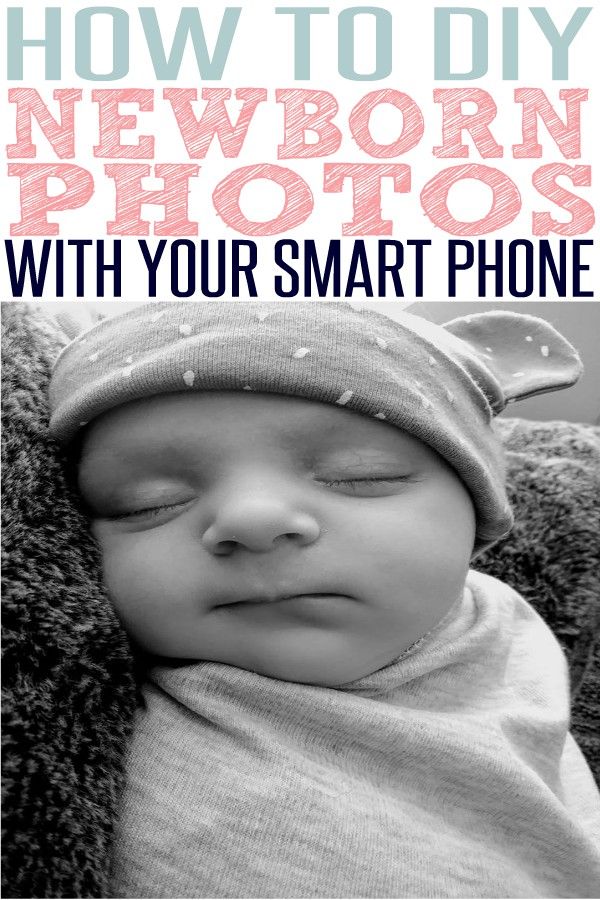 “I love my children, but I hate motherhood,” Maria says. “Children touch me with their faces, stupid actions and funny jokes. I hate motherhood as such - for the need to constantly sacrifice yourself for the sake of others.
“I love my children, but I hate motherhood,” Maria says. “Children touch me with their faces, stupid actions and funny jokes. I hate motherhood as such - for the need to constantly sacrifice yourself for the sake of others.
“I'm terribly tired of sitting at home with them, playing these stupid games, cleaning up after them. Everyday life also plays a big role in this, because endless cleaning, which has no gratitude or feedback, is tiring.
You do everything automatically, like the attendants of your children. It's hard for me to get emotionally involved in them. The older one wants to tell me something, the middle one wants to hear how beautiful she is, the younger one just needs physical contact. And it turns out that I'm fucked up and constantly touched by them."
Maria is sure that it will never be easier for her . Perhaps it will become easier when the children grow up, but there will be other problems, for example, financial ones. All those close to her told her that it was hard only up to a year, and then it gradually became easier. But she doesn't feel it.
But she doesn't feel it.
“When I tell my mother that I hate my children, she replies: “Mash, these are your children. All this will pass, don't think about it." For some reason, we have such an attitude towards the feelings of mothers. That's it, you gave birth - be patient. They were sitting with you, and now you are sitting."
Among the different range of emotions that mothers experience, hatred is the most noticeable. “Any mother has an attitude that she must constantly feel love for her children,” says Alena Prihidko. - And for the first time, when she experiences a feeling of dislike, this event becomes very bright and frightening for her. She begins to analyze it for a long time and as a result can come to a variety of conclusions. Like thinking she's a bad mother."
“Now I'm trying to accept motherhood,” Maria says. Realize that for at least another fifteen years they will be children. I try not to forbid myself to feel all the emotions that I have. Perhaps this will help me become a full-fledged mother, and I will stop running away from my motherhood.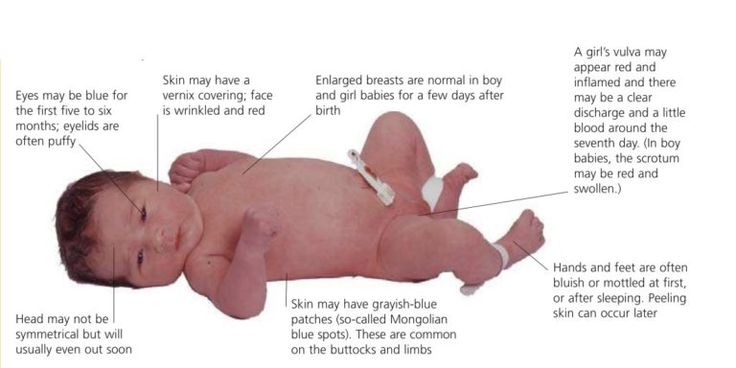
“You don't have to tell me this will pass. It’s not working for me”
Olga’s story
37 years old, lives in the USA, the eldest son is three years old, the youngest is one
“ When women say that it’s hard for them, it means that it’s hard for them . There is no need to say that everyone has it, ”says Olga, mother of two boys. She gave birth to her first son at 34. The boy is suspected of Asperger's Syndrome (AS), which is expressed in problems of communication and social behavior, with concomitant sensory integration dysfunction (this is a condition in which signals from different sense organs are not organized into an adequate behavioral response. - Approx. ed. .). He does not feel hungry until he has stomach pains. He does not understand when he wants to go to the toilet, he is afraid of loud sounds. Despite the fact that he can talk, he expresses his desires and negative feelings through hysteria, aggression or auto-aggression (causing psychological or physical harm to himself. - Note ed. ).
- Note ed. ).
Before the birth of her son, Olga worked with children and knew that it was hard, that parenthood meant certain efforts and sacrifices. She understood that titanic work was behind the upbringing of a child, but at the same time she liked the children.
Immediately after giving birth, Olga did not feel the euphoria that many women talk about: “I only had a feeling of relief that it was finally over. Not to say that the birth was very difficult. I gave birth at home with a midwife. But the process itself was terrible. And when he was born, I exhaled." In the first two weeks, Olga started having problems with breastfeeding. The child was constantly crying and slept very little. Up to seven months, she remembers only the constant cry of her son, there are practically no other memories. Then, when the baby learned to crawl, it became a little easier.
One of the manifestations of SA is lack of attachment. “It is hard to raise a child who is not attached to you. This is a very big problem. My son can run away at any moment, he can be cold and distant when talking to me - he doesn’t look into my eyes, doesn’t smile, doesn’t hug. Until the age of three, he screamed a lot. All his emotions were expressed through op. Imagine that there is a screaming person next to you all the time. He does not communicate with you in a different way, only through op. In our house, the glass is ringing from his screams. With him, as with no other, the proverb is true: what you sow, so you reap. And you need to sow a lot there.”
This is a very big problem. My son can run away at any moment, he can be cold and distant when talking to me - he doesn’t look into my eyes, doesn’t smile, doesn’t hug. Until the age of three, he screamed a lot. All his emotions were expressed through op. Imagine that there is a screaming person next to you all the time. He does not communicate with you in a different way, only through op. In our house, the glass is ringing from his screams. With him, as with no other, the proverb is true: what you sow, so you reap. And you need to sow a lot there.”
There were brighter moments when the son behaved less anxiously. Sometimes it lasted for two or three weeks. Then Olga and her husband woke up with hope that everything could work out. But each time everything started anew: “ This is being in constant slavery . Your needs do not exist at all: neither to eat, nor to go to the toilet, nor to sleep - everything is ignored at any time of the day or night.
Olga had no help: up to a year she sat with her son all day long. The husband was at work during the day, grandparents did not help: “In the evenings, after work, the husband connected to the care of his son. He was very tired, he also began to burn out. As a result, we accumulated irritation with each other.” Olga tried her best to calm her son down, but there came a moment when her strength was running out. Then she simply went to another room to exhale herself, then returned and again consoled the baby for hours. When the baby learned to walk, Olga began to close herself in the bathroom with headphones. Almost none of her relatives could just listen and support her, everyone tried to give advice, insisting that "everything will soon pass." Olga was always very annoyed by this: “You don’t need to tell me that this will pass. It doesn't work for me. Yes, it becomes easier in some ways, but harder in some ways. In my case, in order for something to change for the better, constant titanic work is needed. I just want to be listened to: no comments, no evaluation, no advice.
The husband was at work during the day, grandparents did not help: “In the evenings, after work, the husband connected to the care of his son. He was very tired, he also began to burn out. As a result, we accumulated irritation with each other.” Olga tried her best to calm her son down, but there came a moment when her strength was running out. Then she simply went to another room to exhale herself, then returned and again consoled the baby for hours. When the baby learned to walk, Olga began to close herself in the bathroom with headphones. Almost none of her relatives could just listen and support her, everyone tried to give advice, insisting that "everything will soon pass." Olga was always very annoyed by this: “You don’t need to tell me that this will pass. It doesn't work for me. Yes, it becomes easier in some ways, but harder in some ways. In my case, in order for something to change for the better, constant titanic work is needed. I just want to be listened to: no comments, no evaluation, no advice.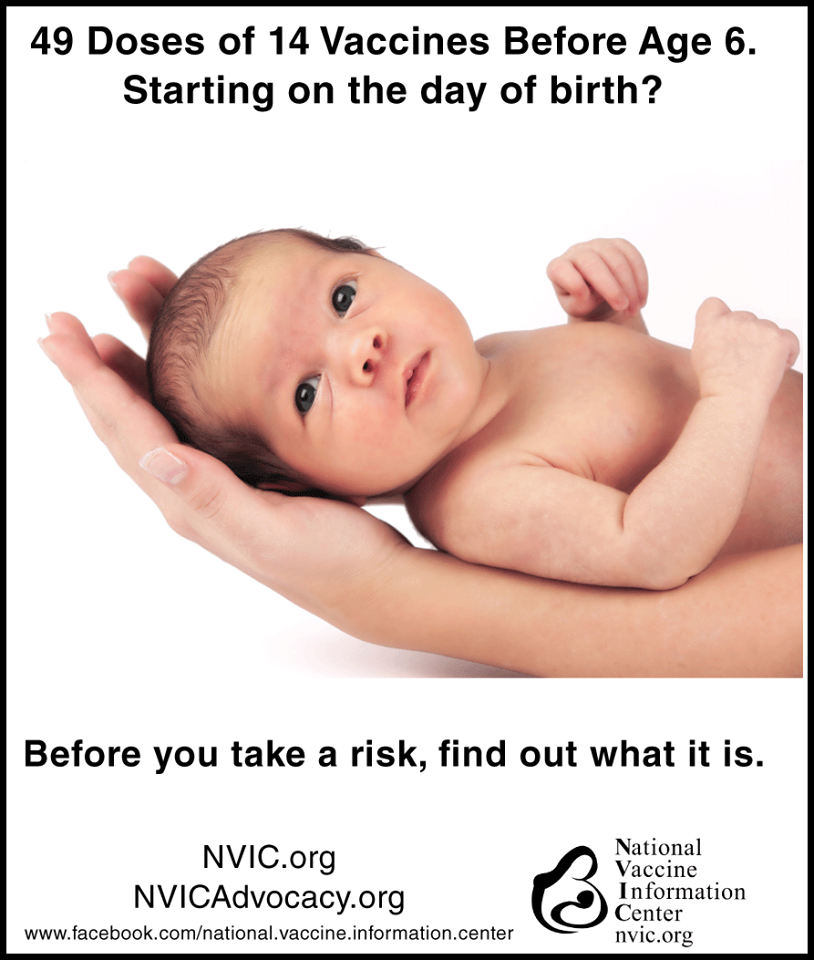 ”
”
Mothers often experience devaluation of their experiences. At the same time, it is difficult to achieve empathy from the source of experiences - a child. “Moms need to learn to sympathize with themselves on their own,” says Alena Prihidko. - There is no point in waiting for sympathy from children - they are at a completely different level of development and are not capable of this until a certain age.
It is important to give yourself understanding and support. You can take care of yourself by talking to yourself the way you would talk to the person you love.
Or maybe even think about the fact that along with you, hundreds of thousands of mothers also experience the same feelings and get tired. In such cases, people are needed who can listen, give warmth and support. People who will help create a space where you can pour out your pain without being judgmental.”
Olga recalls that she was full of strength before childbirth and entered the role of a mother with a good psychological resource. But a few months later, burnout began, followed by postpartum depression: “I keep everything in myself, I tried to work with a psychologist, but, unfortunately, it was unsuccessful. And my anger turns into auto-aggression. If I experience severe stress, then I begin to harm myself - I can open my fingers to the point of blood, for example: this calms me down. I won't cut my hands, of course. But some obsessive movements calm me down.”
But a few months later, burnout began, followed by postpartum depression: “I keep everything in myself, I tried to work with a psychologist, but, unfortunately, it was unsuccessful. And my anger turns into auto-aggression. If I experience severe stress, then I begin to harm myself - I can open my fingers to the point of blood, for example: this calms me down. I won't cut my hands, of course. But some obsessive movements calm me down.”
When the baby was two months old, Olga kissed him on the cheek, and he began to cry because of this. Over time, she realized that it was impossible to hug her son again, because it was unpleasant for him. “He didn’t smile at us. Imagine that an aggressor has appeared in our life, how can we love him ?
All the time Olga was internally struggling with herself, experiencing constant emotional swings — from pity to hatred: “It seems that I’m about to push myself a little and I’m definitely going to love him. It seems you hold on, hold on - and fall down again. You scold yourself for not working out." At the same time, Olga responsibly treats her mother's duties: she spends a lot of time on classes with her son and education, does without screaming and punishment.
You scold yourself for not working out." At the same time, Olga responsibly treats her mother's duties: she spends a lot of time on classes with her son and education, does without screaming and punishment.
When the youngest son was born in Olga's family, the eldest became jealous. She was afraid to leave the children alone in the room, even for a couple of minutes, because she knew that the eldest son could harm the youngest. He could run up and hit the kid with his head on his head. “I was blown away by the tower at such moments, I was ready to just strangle him right away and throw him out the window,” says Olga.
Almost all mothers have an attitude that children should be loved, Alena Prihidko explains. We are living people, and we can have a variety of emotions in relation to children. When mothers begin to scourge themselves for negative emotions, they enter a vicious circle: they got angry with the child, scolded him, and then themselves for being a bad mother. “Love is an emotion, all emotions are short-term, that is, they cannot last long.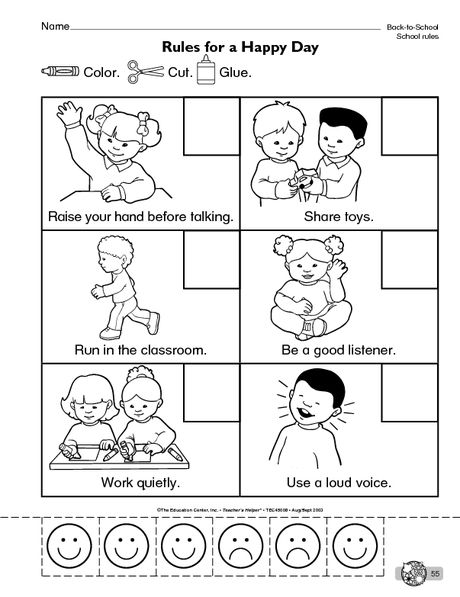 They last for tens of seconds, and then replace each other,” says Prihidko. - Love is the same emotion as shame, joy, fear. And it's impossible to love a child 100% of the time. It is difficult for a tired mother to experience a feeling of love, because against the background of burnout, she has other feelings. When a child is the main cause of fatigue, then in relation to him, the mother can experience completely different emotions, including negative ones. For example, as the psychologist explains, anger is an absolutely normal negative reaction of a mother in a situation where a child does not obey because his behavior creates an obstacle for her. Anger arises when we want to change the way the other person thinks, and we want them to start thinking differently. If someone does not respect us, we get angry because we want to change it. The second common reason is injustice. And parents feel injustice all the time: they do a lot for children, but they do not appreciate it and do not reciprocate, because they are not yet capable of it.
They last for tens of seconds, and then replace each other,” says Prihidko. - Love is the same emotion as shame, joy, fear. And it's impossible to love a child 100% of the time. It is difficult for a tired mother to experience a feeling of love, because against the background of burnout, she has other feelings. When a child is the main cause of fatigue, then in relation to him, the mother can experience completely different emotions, including negative ones. For example, as the psychologist explains, anger is an absolutely normal negative reaction of a mother in a situation where a child does not obey because his behavior creates an obstacle for her. Anger arises when we want to change the way the other person thinks, and we want them to start thinking differently. If someone does not respect us, we get angry because we want to change it. The second common reason is injustice. And parents feel injustice all the time: they do a lot for children, but they do not appreciate it and do not reciprocate, because they are not yet capable of it.
Now, three years later, Olga admits that she was able to accept her son: “The theory of attachment helped me a lot. Even his behavior began to improve little by little. You can leave your husband, you can not communicate with your parents, but you can’t get away from the child. He was already born, already exists, even if you left him somewhere and abandoned him (which I can’t imagine at all), he still exists somewhere, and you bear this responsibility. You can divorce your husband and after a couple of years you no longer know where he is and what he is. It won't work with a child."
Many psychologists who specialize in motherhood work with attachment theory. It boils down to the fact that an adult takes full care of a child until the child can take care of himself. When an adult develops attachment, he feels responsible for the child - this helps the parent not only take care of the child and help him, but also enjoy this process. At the same time, attachment does not have to be associated with love. According to this theory, a child who receives enough care from an adult becomes independent more quickly.
According to this theory, a child who receives enough care from an adult becomes independent more quickly.
When asked if Olga loves her son, she honestly answers: “During the first three years, I sincerely admitted to myself that I did not love my son. But I always wanted to love him.
Communicated with friends, asked for advice. I realized that many people are sailing in the same boat, they just do not admit it to themselves. In society, it is not customary to talk about the dislike of parents, especially mothers, for children.
“I would like society, especially in Russia, to reconsider their attitude towards mothers and motherhood,” says Olga. - This attitude "has given birth - stay at home" is felt in everything. Not everywhere there are changing tables, not everywhere there are places for a child, not everywhere you and your children are welcome at all. And the phrase "everyone is like that" is annoying. I remember that my friends constantly told me: "Well, what are you doing, children - this is such a joy. " And I thought that something was wrong with me, that I was so flawed. And it turns out that society sometimes hammers the last nail into the coffin. I think that I could have accepted my son much earlier if there were more caring people in my environment.”
" And I thought that something was wrong with me, that I was so flawed. And it turns out that society sometimes hammers the last nail into the coffin. I think that I could have accepted my son much earlier if there were more caring people in my environment.”
“Sometimes I just want her to be gone”
Anna’s story (name changed at the request of the heroine)
41 years old, lives in Moscow, two children: the eldest daughter is fifteen years old, the youngest son is two
“There are problems in any motherhood, but when you raise a child without love for him, this is a prison,” says Anna. She gave birth to her first daughter at the age of 26 - due to problems with the reproductive cycle, the woman was sure that she would not be able to conceive a child without appropriate treatment. Therefore, the news of pregnancy came as a surprise to her.
“I had a severe stomach ache, I couldn't wear tight clothes. And I thought I had a tumor or cancer. In such a state of terrible horror, I went to the doctor, and they told me that I was in my ninth week, ”says the woman. By that time, Anna was already thinking about parenthood, although she did not plan to become a mother in the near future. But she did not have any thoughts about abortion - she knew that in this case, she had too high a chance to be left without children at all.
By that time, Anna was already thinking about parenthood, although she did not plan to become a mother in the near future. But she did not have any thoughts about abortion - she knew that in this case, she had too high a chance to be left without children at all.
Anna broke up with the father of the child at that time. He was younger, she did not have serious feelings for him. But after the news of the pregnancy, they got together, began to live together and soon got married. At that time, Anna was studying at a party at Moscow State University and she did not want to quit her studies. My husband's mother came to the rescue - she took over all the main duties of caring for the child and around the house.
Almost the entire pregnancy, Anna and her husband were expecting a boy — this was shown by several ultrasounds done in different clinics. But in the seventh month, they suddenly found out that there would be a girl: “It seems that I then cried for a week. That is, yes, I realized that I have a living healthy girl in my stomach.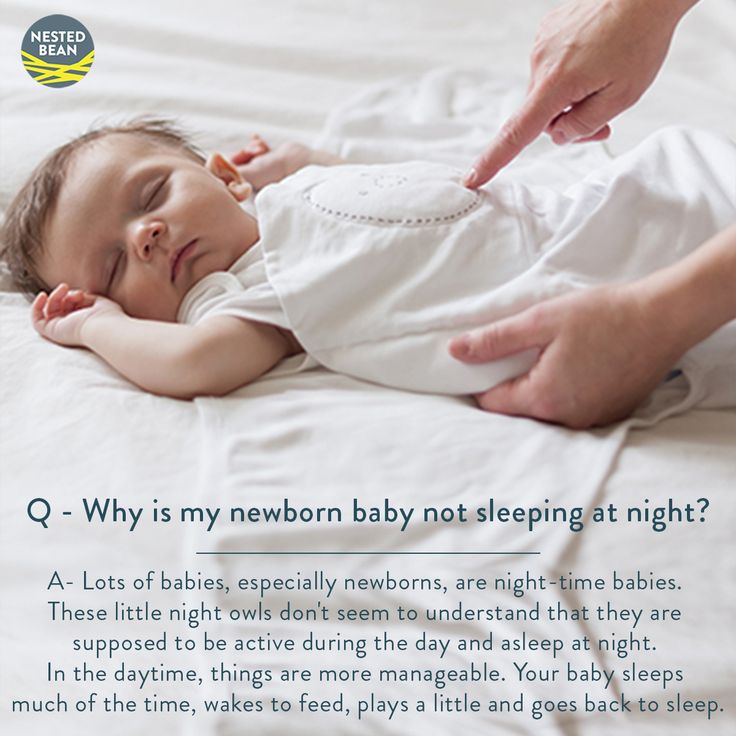 But I mourned my boy. It may seem ridiculous, but at that moment it was a tragedy for my mind.”
But I mourned my boy. It may seem ridiculous, but at that moment it was a tragedy for my mind.”
“The birth was very difficult,” recalls Anna. - The doctor wanted to perform a caesarean section on me, although there were no indications for him. And I wanted to give birth myself. As a result, the process still did not go in the most natural way. I was alone, frightened, I was in pain: I lay under a drip at night, and the doctor went to bed. And when she woke up, the child already had hypoxia. Everyone immediately ran, took me to the operating room, and the doctor on the way said: "Well, I told you."
Due to complications, Anna was only able to see her daughter three days after the birth. Against the background of all the other children, Sophia (name changed) for Anna was the most beautiful - the baby had smooth skin and long eyelashes. But the woman did not feel the feeling of closeness: “It seemed that she was simply given to me. A very pretty, cute baby. But what about me, it was not clear.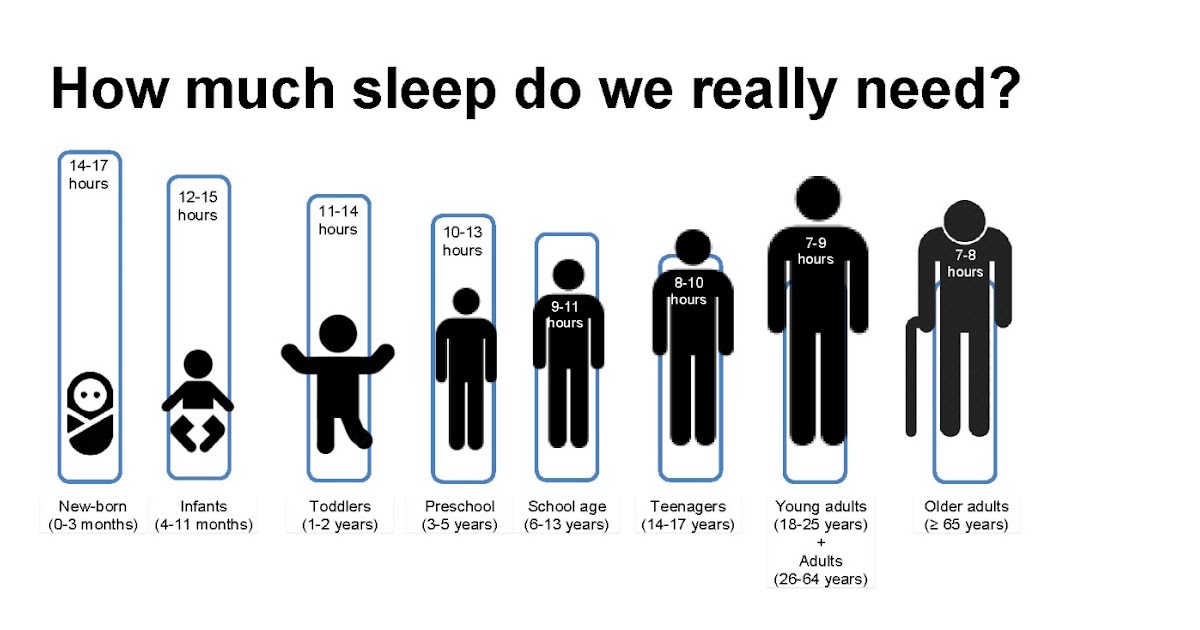 There was no connection between us and no feeling that I was somehow involved in her appearance .
There was no connection between us and no feeling that I was somehow involved in her appearance .
After arriving home, the feeling of alienation towards my daughter only intensified. According to Anna, the grandmother wanted a daughter all her life, and therefore she was extremely happy with her granddaughter. At some point, Anna felt like a guide through which Sophia came into the world for her grandmother and father. Since her grandmother practically took on the role of a mother, Anna was able to quickly return to her ordinary life - to study and work - without spending a lot of time caring for the child.
According to Daria Utkina, a mother can have a feeling of alienation towards a child for various reasons. The most common of them: unwanted child or unexpected pregnancy, pregnancy due to violence, prolonged separation from the child, when someone else becomes the main adult for him, emotional burnout, severe fatigue, depression (not necessarily postpartum).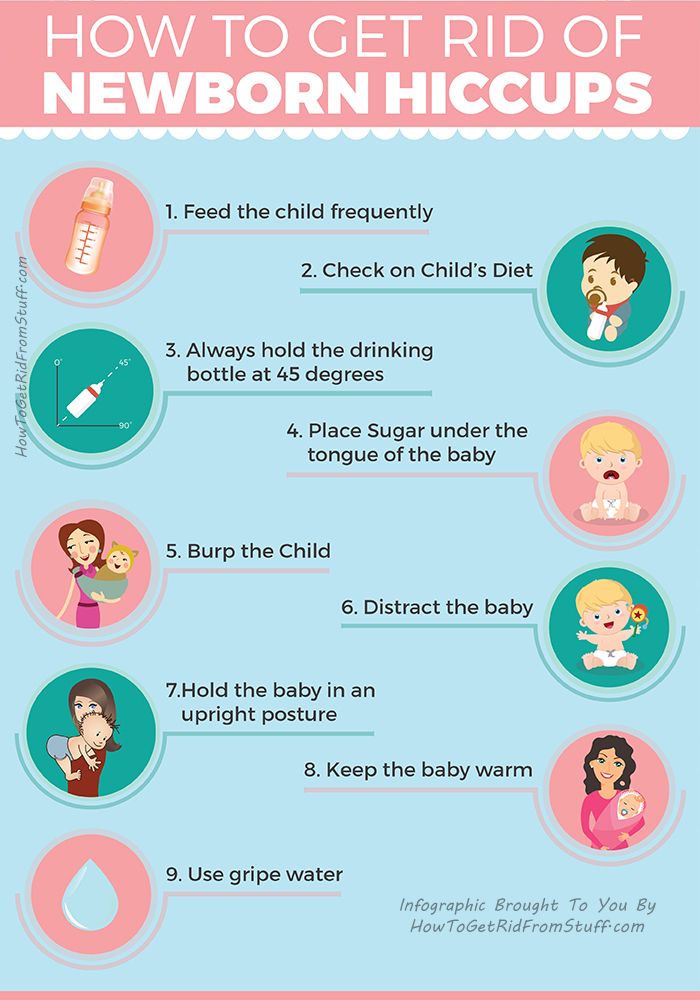 Sometimes a feeling of alienation towards a child can be a manifestation of a feeling of alienation in relation to any relatives in general. Most often, the formation of such an attitude is influenced by several factors at once, related both to the emotional state of the mother and her experience, and to the circumstances in which she finds herself.
Sometimes a feeling of alienation towards a child can be a manifestation of a feeling of alienation in relation to any relatives in general. Most often, the formation of such an attitude is influenced by several factors at once, related both to the emotional state of the mother and her experience, and to the circumstances in which she finds herself.
Sophia grew up very sensitive. Anna recalls that when her daughter was a child, any difficulty immediately made her hysterical. “It annoyed me to the point of shaking, to hatred. When she screamed hysterically non-stop over some little thing, I yelled, "Get this away from me."
When Sophia grew up, Anna began to understand that her and her daughter's feelings were mutual: her daughter also did not give her as much warmth as her grandmother. Watching how her husband's mother treats her child - with unconditional love and acceptance - and comparing this with her attitude, Anna began to think that she was a bad mother: "I always thought that I was a mother-shit - and I have a child that's why he's so hysterical.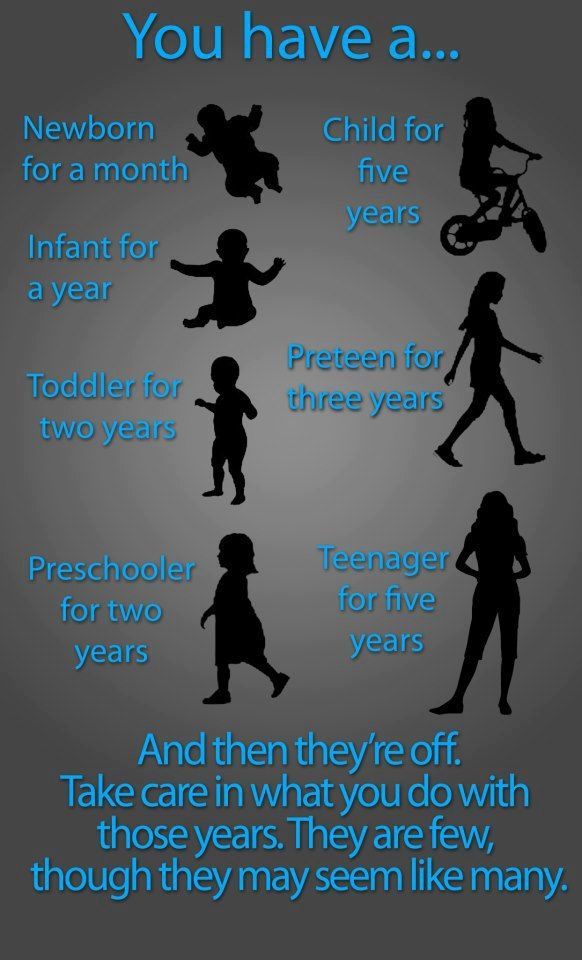 I constantly had thoughts that I should give it somewhere. I thought, let her grandmother adopt her, because I cope very badly with her. I am horrified when they leave me alone with a child.”
I constantly had thoughts that I should give it somewhere. I thought, let her grandmother adopt her, because I cope very badly with her. I am horrified when they leave me alone with a child.”
“I don't love her, it's hard for me, I'm not interested. At some point, I just wish it wasn't there. She does not bring me anything good, but at the same time she takes a lot of things from me, ”says Anna.
She admits that there were times when she wanted to harm her daughter by screaming or spanking, while knowing full well that these were unacceptable methods of education.
From an early age, the grandmother began to take the child on vacation to Moldova, where she had a dacha. Anna loved this time and did not suffer in separation from her daughter. When Sophia was ten years old, her parents divorced. “After the divorce, I had a real depression, but there was a very biased attitude towards psychiatry. I thought I could handle it myself, but I did it very badly,” says the heroine. Grandmother then moved to Crimea, built a house there and offered to take her granddaughter for the summer. Anna immediately agreed, because she was sure that her grandmother in Crimea is much better than her mother, who is struggling with depression, and her father, who cannot decide how to live on.
Grandmother then moved to Crimea, built a house there and offered to take her granddaughter for the summer. Anna immediately agreed, because she was sure that her grandmother in Crimea is much better than her mother, who is struggling with depression, and her father, who cannot decide how to live on.
Sofia has left. First for the summer, and then her grandmother invited her to stay for another couple of months of warm autumn. As a result, winter came, Sofia went to school, then enrolled in an art school. Every time Anna asked her daughter if she wanted to return home, the girl answered that she would stay with her grandmother for a little longer. As a result, through joint discussions, it was decided that the daughter would come to visit Anna several times a year.
“This sense of alienation does not go away, and I am not sure that it ever will. My daughter is an unkind, unempathetic child. With age, everything becomes easier, simply because she becomes more independent.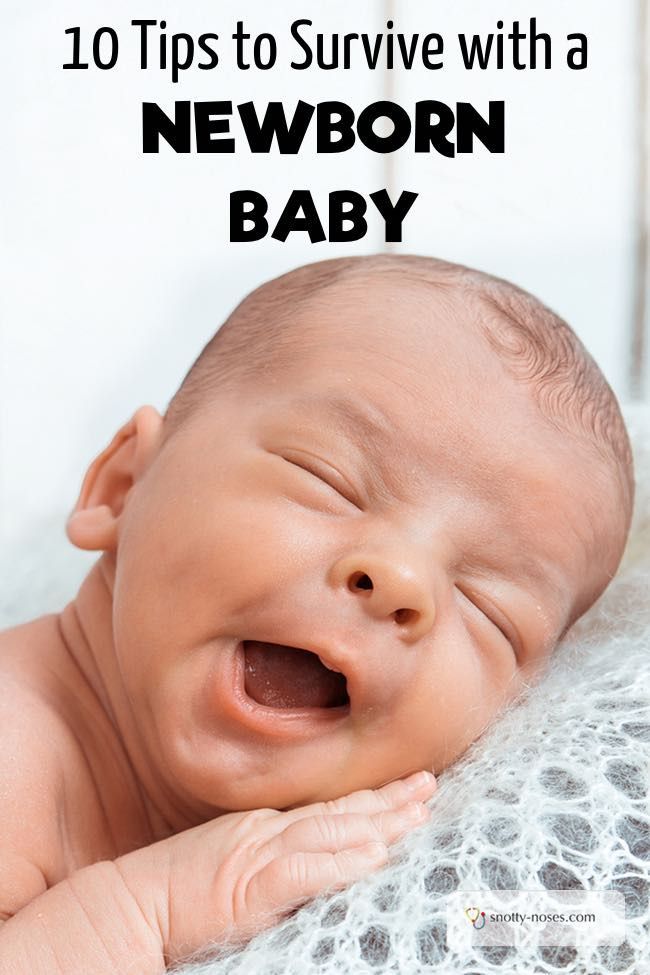 You can negotiate with her, you can switch to some other business. There is no longer such a total dependence. But love does not suddenly arise, ”says Anna. She also remembers the bright moments spent with her daughter, when it seemed to her that they were getting closer. And the moments when Anna felt love towards her daughter. But, according to her, this feeling is very fragile. And when another conflict happens, emotional kickbacks happen very quickly.
You can negotiate with her, you can switch to some other business. There is no longer such a total dependence. But love does not suddenly arise, ”says Anna. She also remembers the bright moments spent with her daughter, when it seemed to her that they were getting closer. And the moments when Anna felt love towards her daughter. But, according to her, this feeling is very fragile. And when another conflict happens, emotional kickbacks happen very quickly.
This is exactly what happened on my daughter's last visit. When Sophia arrives in Moscow, she lives with Anna, her husband and younger brother, whom she, according to the heroine, is jealous of. Once Sophia wanted to meet her dad, she and Anna agreed that during the day her daughter would do housework, and in the evening she would go to her dad. But it turned out that only one key remained at home. As soon as Anna told her daughter about this, she immediately burst into tears, called her father and said in hysterics that her mother was locking her at home. The ex-husband called Anna and threatened the police if she did not immediately let the child out of the house. “I was shaking and pounding all over, I let her go to my dad. And in a couple of days, through my grandmother, I find out that my daughter is going to live with her father, ”says the woman.
The ex-husband called Anna and threatened the police if she did not immediately let the child out of the house. “I was shaking and pounding all over, I let her go to my dad. And in a couple of days, through my grandmother, I find out that my daughter is going to live with her father, ”says the woman.
After this situation, Anna wrote a post in a Facebook group for mothers asking for advice on what to do when the child's father threatens the police. She described her story in detail, and in 15 minutes, fifty angry comments appeared under the post that Anna was a disgusting mother, and her daughter was very unlucky.
Anna admits that they do not feel guilty, although she has a feeling that she should have felt it: “A mother who deviates and does not comply with some traditions and norms will be condemned. The fact that I gave my daughter to my grandmother automatically makes me a monster, and hers an unhappy and poor child. But if I grew her on my own, killing my and her psyche, would that be right?
“Women regret motherhood in different ways,” explains Daria Utkina.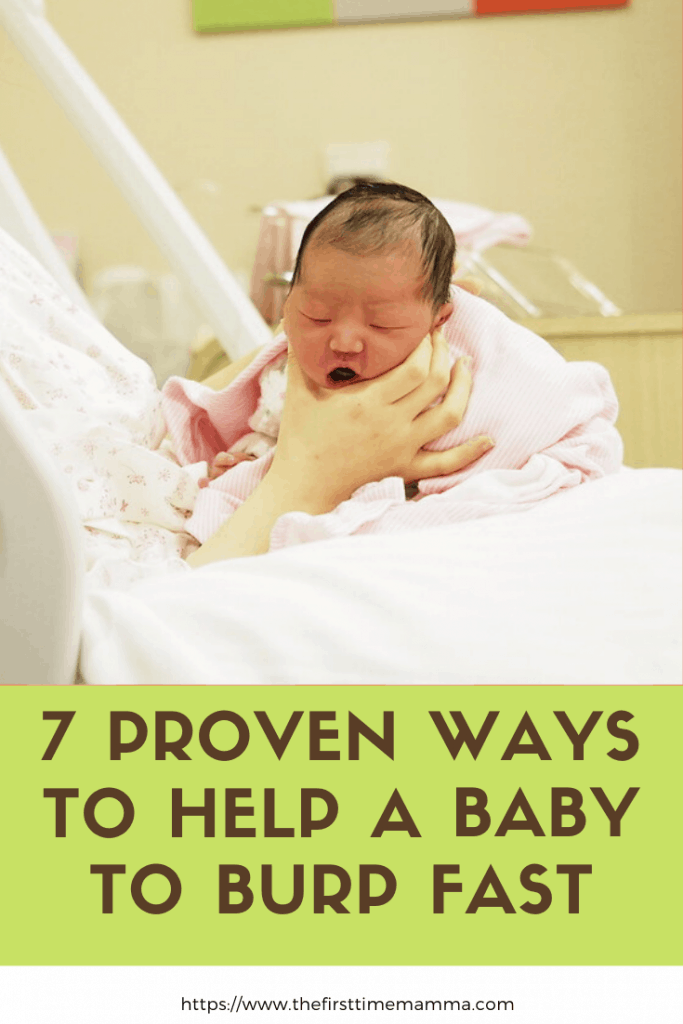 “There are quite a few who experience only this feeling. More often these are ambivalent experiences: and regret, and love, and anger, and joy. And this is what happens the hardest. Because many people think that motherhood is only happiness, and it is strange and bad to experience all other feelings .
“There are quite a few who experience only this feeling. More often these are ambivalent experiences: and regret, and love, and anger, and joy. And this is what happens the hardest. Because many people think that motherhood is only happiness, and it is strange and bad to experience all other feelings .
It is very important for modern mothers to know that it is normal to be angry with a child or regret that with the appearance of a child in life there is less freedom and more responsibilities.
Anna has completely different feelings for her youngest son. Despite the fact that the birth was much more difficult, Anna lost a lot of blood and ended up in intensive care. But when she saw her son, she immediately felt a connection that she did not feel with her eldest daughter: “There were completely different feelings. Engagement immediately appeared: I knew this was my child, I gave birth to him.
Now Anna regrets that she cannot have the same feelings for her daughter. She worries that her daughter cannot be close to her in the same way as with her grandmother. But she is sure that she has chosen the best layout for herself and for her.
She worries that her daughter cannot be close to her in the same way as with her grandmother. But she is sure that she has chosen the best layout for herself and for her.
Anna believes that involvement in a child is a guarantee of happy motherhood: “When you have it, even if it’s hard for you, you understand why you endure all this. And if there is no inclusion, then this is hard labor - you just have to wait until the child grows up, goes into adulthood, and you become free. And there are no guarantees that this involvement will arise in every mother. This violation of chemistry can appear at any time. And it is not clear what mothers should do in such situations. Knowing the theory of attachment and understanding that the child will not always be like this helped me a lot, she will grow up and change. And in general, understanding the psychology of childhood and upbringing can help reduce the level of adverse interaction with the child. Now I know how to make our relationship less traumatic and more acceptable, so that I myself can sow the ground for the healthy development of my child.
“I am a terrible mother and I don't love my child”: what is postpartum depression
It is believed that the first months of a child's life are a happy period for his parents. The fact that the appearance of a child can cause depression in both mother and father, many do not realize. Afisha talked to women who have experienced postpartum depression and learned from a psychologist how to deal with it.
Anastasia, 27 years old, St. Petersburg
gave birth at 25, first child
The child was very desired, planned. The birth went quickly, with almost no pain. Joyful relatives met me from the maternity hospital. A few days at home with me and my son was my husband, who specially took a few days of vacation.
And it all started when I was left alone, one on one with a child. The baby was very restless and was constantly crying, I didn’t have enough milk, I started feeding him formula, and everything seemed to be more or less normal, but then various bad thoughts came into my head.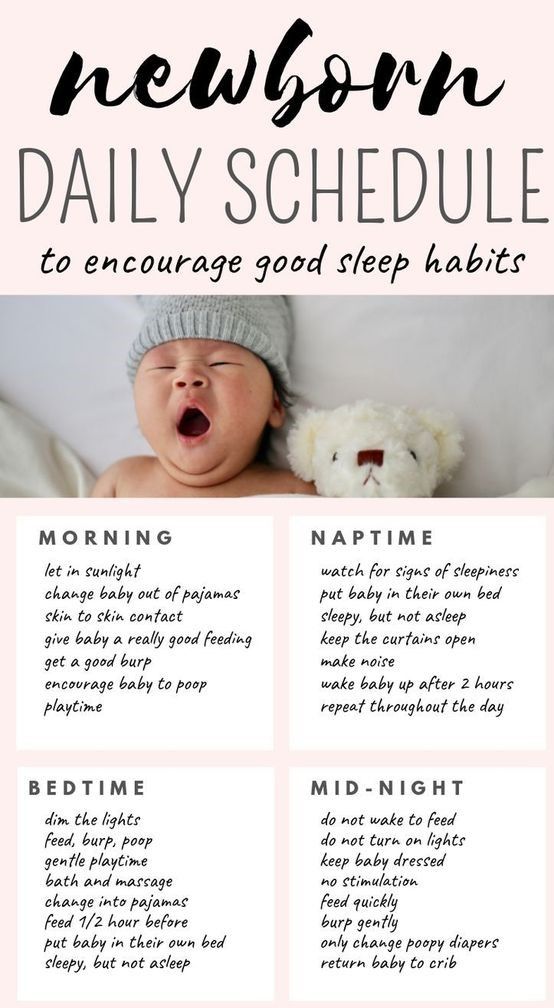 I just couldn't hear him crying, I wanted to run away, to be alone for a second, so that no one would touch me, so that I could just sit alone. I began to wait for my husband from work, gave him my son, and I myself went for a walk with the dog, looked at people. It was summer, everyone was so joyful and happy, but it seemed to me that my life was over and that I would forever sit within four walls and would never be happy again. This is a terrible state, you cannot just rejoice at your baby, so long-awaited, so beautiful! On a walk with a child, I looked at other women and did not understand why they were happy. Where do they get the strength to smile? I started smoking again.
I just couldn't hear him crying, I wanted to run away, to be alone for a second, so that no one would touch me, so that I could just sit alone. I began to wait for my husband from work, gave him my son, and I myself went for a walk with the dog, looked at people. It was summer, everyone was so joyful and happy, but it seemed to me that my life was over and that I would forever sit within four walls and would never be happy again. This is a terrible state, you cannot just rejoice at your baby, so long-awaited, so beautiful! On a walk with a child, I looked at other women and did not understand why they were happy. Where do they get the strength to smile? I started smoking again.
Husband tried to support. He took care of household chores, rocked his son at night and tried to bring me to my senses when tantrums happened. He never reproached me for my condition, but did not understand what was wrong with me. And I had only one thought: I am a terrible mother and I do not love my child.
My mother knew about my condition, but she was very aggressive towards it, she shamed me. When I started whining that I felt bad, that I couldn’t live like this, and so on, she rudely put me in my place. I felt uncomfortable. I didn’t go to the doctors, which I regret now. I just talked on forums with poor people like me.
About a month later they started to let me go, I started to be distracted by household chores, I chose different routes for walking with the child. In the end, I overcame it by simply pulling myself together. I looked at my son and said to myself: "No one can love this child as much as I do." I found a hobby, my son became calmer, I got a little more time for myself. Remembering that state of mine, I feel shame in front of the child. I don't want this to ever happen again.
Julia, 28 years old, Moscow
gave birth at 25, first child
Before going on maternity leave, I was a corporate account manager in a small company. I worked hard and with pleasure, almost without days off. I had strength, there was no toxicosis, I earned money for childbirth, beds, toys and so on. She went on maternity leave a month before giving birth, only because she was physically unable to move quickly.
I had strength, there was no toxicosis, I earned money for childbirth, beds, toys and so on. She went on maternity leave a month before giving birth, only because she was physically unable to move quickly.
After giving birth, I looked at my roommates who were touched by their children, spoke tender words to them, stroked and hugged them, but I could not do this in relation to my own child, I did not know how, did not understand how and why, did not feel this very maternal love, but felt her failure. I thought that the birth of a child is a natural process, which is unconditional happiness, and the maternal instinct in me will immediately wake up, but this did not happen. I became withdrawn, suffered from insomnia, confused the times of day, got irritated. There were thoughts of suicide (neither before nor after that there was no more), outbreaks of aggression. I felt lonely and abandoned, although my husband was there and helped. At night I cried, told him how scared I was that I couldn’t control myself, I didn’t feel any love for either the child or anyone else.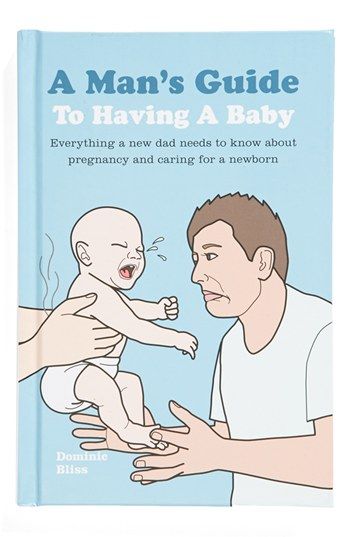
I have a degree in psychology, and when I put it all together - suicidal thoughts, sleep disturbance and apathy - I realized that it was depression. Already on the decline of an acute condition, when the child was eleven months old, she turned to a Gestalt psychologist, although it should have been done earlier. The diagnosis was made as follows: borderline condition. We spent about four sessions with her, and I felt better. Reading literature on developmental psychology also helped, as well as the support of my husband, mother and neighbor: she has a child six months older than mine, she also walked with bruises under her eyes, but she smiled.
I would advise mothers to get enough sleep, think first of all about themselves and their well-being, not try to do everything and be an ideal mother, wife, worker, and so on at the same time, accept help and ask for it. I would also advise you to prepare yourself informationally for the birth of a child, read books, articles on the Internet (not forums!), go to courses, and if you notice signs of depression, then go to a proven psychologist.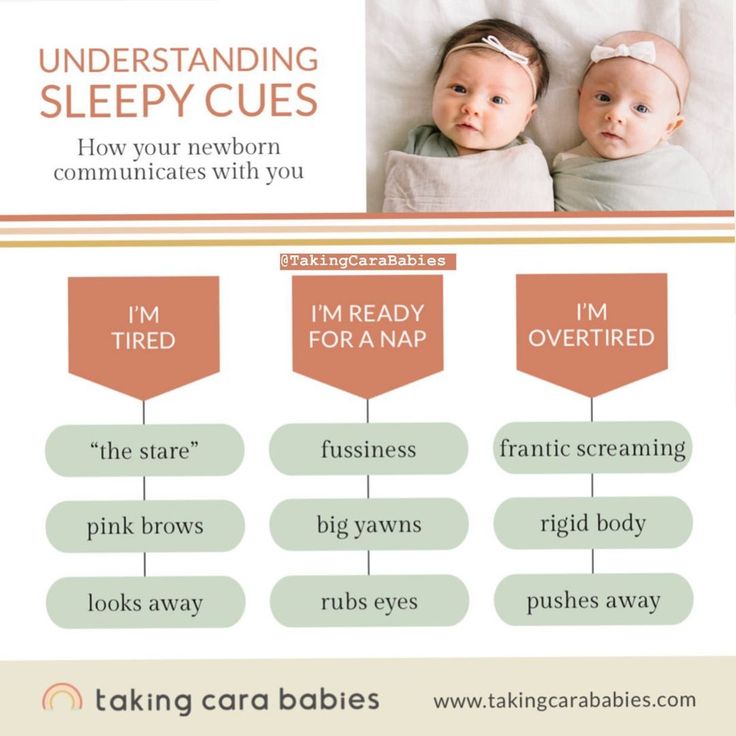
Sofia, 31 years old, Moscow
gave birth at 30, first child
Nobody officially diagnosed me with postpartum depression, but the suspicion appeared pretty quickly. Even at the maternity hospital, my daughter and I had a problem with feeding: she was constantly sleeping, it was impossible to wake her up and not feed her. When she woke up hungry, she would spit out my milk and fall into hibernation again. Lost weight rapidly.
I certainly didn't expect anything like that. I even took a book with me to finally relax. Instead, I had to rush through articles on "How to Breastfeed," which said the same thing in different words: if things are not going well, then the mother is not trying hard enough. As a result, I rushed about the hospital ward like a pale, roaring, swollen ghost. The joy of motherhood is the last thing I felt. But it was hard to breathe from the responsibility that had fallen on me and the feeling of utter worthlessness.
For the first month I struggled to fucking breastfeed. As a result, I hated the whole world. But it was not only about feeding. My life, which I built brick by brick exactly the way I liked it, suddenly collapsed. Everything went wrong, nothing worked out for me. And I didn't see any prospects. I just wanted to sleep and cry. There was no happiness, no butterflies and unicorns, there were only crosses with which I crossed out days on the calendar, not understanding why.
As a result, I hated the whole world. But it was not only about feeding. My life, which I built brick by brick exactly the way I liked it, suddenly collapsed. Everything went wrong, nothing worked out for me. And I didn't see any prospects. I just wanted to sleep and cry. There was no happiness, no butterflies and unicorns, there were only crosses with which I crossed out days on the calendar, not understanding why.
I am very lucky with my family and friends. They supported me the best they could. My husband would rush home every day after work and melt into our daughter, while I could sit alone. The mother-in-law, with whom we lived at that time (our apartment was mired in repairs), took over the cooking for everyone, including me. Moreover, I had to cook separately, because I had a "menu for a little nursing mother." My 80-year-old grandmother came from the other end of Moscow to take a walk with her great-granddaughter. My friends dragged me out to the cafe and listened to my confused stories about how things were not as radiant as expected.
I couldn't come to my senses for a little over a year. Several things helped me. The support of relatives is really very important, especially the help of a husband. I know that many fathers cannot stay with their babies, and this subsequently makes life very difficult for mothers. I first went out with a friend in a cafe a week after giving birth. Two months after giving birth, I went to work part-time. And a couple of months later, a crisis broke out, the ruble fell, and the husband was left without a job. He decided to take advantage of the break to finish the repairs in our new apartment. And then he decided to stay at home with his daughter. So we switched roles. At first it scared me terribly. Then I began to notice that I was rapidly getting better. In addition, I realized that I can feed my family.
The next step was to accept that my life would never be the same again. Everything turned out to be so complicated and unusual that I clung to the past and tried to forget my problems, returning to that life at least sometimes - for example, during the same trips to the cafe. They supported me, but they also slowed me down. It’s as if I’m a normal person there, but at home I’m in a strange role that doesn’t suit me. And there was no way to combine it all into one image.
They supported me, but they also slowed me down. It’s as if I’m a normal person there, but at home I’m in a strange role that doesn’t suit me. And there was no way to combine it all into one image.
Therefore, I turned to a psychologist - a year after giving birth. So late just because I couldn't find the right one. And I didn't know how to search at all. I asked my friends, they gave me names and immediately - sky-high figures for me of their fees. By chance, I found out that in the capital there is a city psychological service that is free for Muscovites. I figured that there seemed to be nothing to lose here, and called. I said that I had "postpartum depression or something like that", and I was referred to a prenatal psychologist. It turned out that Muscovites are entitled to 10 free sessions, and then, after a three-month break, again for ten, and so at least for the rest of their lives.
Three months have passed since then, and I finally found some kind of harmony. I can say that the depression is gone. However, the psychologist did not give me such an official diagnosis, besides, she said that it was none of her business - psychiatrists do this. But if she saw clinical signs in me, she would refer me to them, they are also in the service.
Expert opinion
— Is there such a diagnosis as postpartum depression?
- Yes, according to ICD-10 (International Classification of Diseases) there is such a diagnosis, code - F53.0. Accordingly, postpartum depression is not an invention of pampered mothers, but a serious disease that needs to be treated. According to statistics, postpartum depression of varying severity occurs in 15% of cases.
— When does it become clear that we are talking about postpartum depression and not short-term mood disorder, which is called baby blues in English-language articles on the topic?
- The mood changes depending on what is happening in life. The baby slept well, managed to do something for herself - she felt satisfied. She took it in her arms, pressed it to herself - warmth and tenderness spread over the body. I understood why I was crying - I am pleased with myself. I managed to sleep - I felt rested. They let me go to a girlfriend or to the theater - I experienced pleasure. When a woman is really depressed, she sleeps and does not get enough sleep, rests, but this does not help either. Nothing brings positive emotions. And the most painful thing is that she loses the sense of the meaning of what is happening, she does not feel that at least something brings relief and joy. She takes the child in her arms and does not feel anything. The hardest thing about postpartum depression is that a woman tries, but cannot, feel love for her child. And she is torn apart by guilt and the feeling that she is a bad mother. It's not baby blues at all.
- Can postpartum depression appear not immediately after childbirth, but, say, after a couple of months?
- According to the ICD, postpartum depression begins within six weeks of childbirth. According to medical observations, most often immediately after childbirth. After six weeks, it's just depression.
- Is there any risk group? Is it possible to predict the development of depression in the mother even before the birth of the child and somehow prevent it?
- Anxious-depressive individuals are more prone to depression. Also, postpartum depression is more likely to develop if a woman has a history of depression. Predicting depression before the baby is born is quite difficult. But after the birth of a child, the woman herself needs to be attentive to herself, and her relatives to her, and if something is wrong, consult a specialist as soon as possible.
— How to deal with postpartum depression? Which specialist to contact?
— Depression is treated quite successfully with medication and psychotherapy. In case of mild depression, a psychologist can help. Existential and cognitive-behavioral therapy are very good at helping to cope with depression. Existential therapy helps to find the lost meaning of life, to find access to blocked resources. Cognitive-behavioral teaches you to recognize depressive thoughts in yourself and change them to adequate ones. So, with depression, so-called overgeneralization often occurs. For example, "I am a bad mother." This conclusion is made on the basis of a single episode. For example, the baby caught a cold and got sick. And the woman begins to blame herself excessively, forgetting that she coped with all other worries quite successfully. A psychologist helps to open your eyes to the life situation as a whole and draw plausible conclusions. But if psychological help does not help, then you need to contact a psychotherapist. If a specialist prescribes medication, then the mother will have to stop breastfeeding.
— What are the effects of depression on mother and child?
— It all depends on the severity of the depression. Mild and moderate depression can even go away on its own, but during this time a woman suffers, these few months can be a real nightmare. Severe depression has serious consequences, and it must be treated, it will not go away on its own. As for the child, postpartum depression, as a rule, occurs in the first two and a half months of his life. During this period, the main occupation of the mother is the satisfaction of the physiological needs of the child. A woman with a breakdown (and severe weakness that does not disappear after rest is one of the symptoms of depression) will find it very difficult, if not impossible, to care for a child. And she will not be able to emotionally communicate with the child, which will be expressed in some lag in his psycho-emotional development. In such a situation, it is very important for the family to take on these functions.
— Why are there so many opinions that postpartum depression is a made-up problem? Here are just some examples from the forums: “All these depressions are stupid, I don’t believe in it”, “Depression is the lot of spoiled and infantile girls.” Why is it so hard for people to believe that a woman who has given birth is really depressed and needs help?
- Because someone who has not experienced depression himself cannot understand how hard it is.

